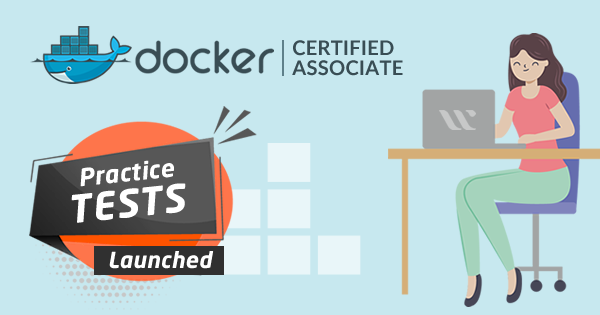DevOps is currently a buzz word in the technologically advancing era. The ability to improve products and the faster development of software leads to the increase in popularity of DevOps. DevOps is the integration of development and operations to bring a new perspective to the software industry. It is known to be an offspring of agile software development. DevOps refer to a set of practices that help in automating the software development processes.
DevOps helps in enhancing the automation, integration, collaboration, and communication between the software developers and IT operations to ensure the delivery of quality software at a faster pace. It is effective in speeding up innovation and shortening the development cycle of software. DevOps is successful in lowering the number of implementation failures and reducing recovery time.
Check out our DevOps Certification Training Courses and start your preparation for one to get ahead in your career.
Top DevOps Best Practices
One of the major importance of DevOps is that it helps in enhancing the communication and cooperation between the software development teams that support better performance. While the main aim of DevOps is to improve the deployment frequency, lower the failure rates, shorten lead times, and improve recovery time.
Ansible, Kubernetes, Docker, Jenkins, and more are some of the best DevOps tools. Knowing the DevOps best practices can help in improving software development even more. So, let’s check out the list of DevOps best practices.
1. Active Participation of Stakeholders
One of the key practices for DevOps is the active participation of stakeholders. As a fundamental philosophy, the operation staff, developers, and the support people need to work closely regularly. When the key stakeholders of the software development process work together, the outcomes are sure to be of the high standard.
2. Automate the Infrastructure
Automating the infrastructure is one of the important DevOps practices in agile. The agile software developers focus on quality codes and desire to test the codes early and as often as possible. It necessitates the automation of the infrastructure. With the automated infrastructure, automated scripts can help in enhancing the process throughout the development cycle, resulting in more robust versions of the software.
Test automation is applicable for middleware configurations, code development, and data and networking changes. Test automation starts with identifying the test cases and scenarios and selecting the appropriate automation tools. Then by running the test cases and analyzing the outcomes can help in accomplishing test automation, which one of the important DevOps best practices. Automated testing enables quicker execution of the software development life cycle.
3. Integrated Change Management
The IT infrastructure is continuously evolving with the advancements in technology. The continuous evolution makes integrated change management one of the DevOps best practices 2019. Change management refers to the process of making changes to the configurations to meet the new requirements and the dynamic circumstances.
Though the change management process might be a little tricky, it helps in providing better support to the overall organization. As DevOps brings enterprise-level issues that are related to operations, it makes the formulation of the integrated change management strategy complex. While incorporating the integrated change management strategies, the development team will have to work together to understand the impact of the technology changes.
The skills of a DevOps engineer is measured in the competency of one or more DevOps tools they can use. Check out this list of top 10 DevOps tools.
4. Integrated Configuration Management
Apart from the integrated change management, integration configuration management is DevOps best practices. Change management and configuration management are integral to operations. Configuration management includes monitoring, automation, maintenance, and management of the system-wide configurations across all servers, networks, applications, and other managed services.
In the DevOps environment, there is a need for the developers to look into the bigger picture. Integrated configuration management enables them to look at the broader aspect. With the integrated approach, the development team focuses on the configuration issues of the complete infrastructure of the organization.
It enables the developers to make use of the existing services for software development instead of investing time in developing new services from scratch. It also enables the operation staff to have a better understanding of the potential impact of the new releases and assist them in making the right decision regarding the right time for a new release.
5. Integrated Deployment Planning
Deployment planning is an important element of software development. It is also one of the AWS DevOps best practices. Deployment planning requires interaction between the operation staff, developers, and support groups. Deployment planning continues throughout the software development process. While adopting the DevOps strategy, there is a growing need to follow the cross-team approach. Integrated deployment planning helps meet the quality requirement of the new software releases.
6. Product Support
A majority of the development teams work on the new releases that already exist in the production. In such an environment, the team also has an additional responsibility to address the production problems. Product support is identified as yet another DevOps best practices of recent times. The practice of production support offers the development team an opportunity to learn and improve the process of designing the software.
7. Continuous Integration
Continuous integration is one of the key practices for DevOps. It basically refers to the building as well as validating a project regularly. It is a practice that requires the development team to update the changes in code in the repository regularly. The continuous integration tools help in figuring out the integration challenges and finding out optimum solutions.
The practice of continuous integration enables developers to conduct integrations frequently. Continuous integration ensures the development of high-quality software by providing regular and immediate feedback. It enables better collaboration among the development team and helps in building quality software products.
A certification helps you bring your career one level up. Check out the list of Best DevOps certifications and get one for a bright career.
8. Continuous Deployment
Continuous deployment is one of the Azure DevOps best practices. It is simply an extension of the continuous integration practice. The deployment process encompasses many sub-processes, including creation, versioning, testing, deployment, and more. Through continuous deployment, the code is deployed automatically in the production environment.
With the help of the various tools available, the developers perform continuous deployment right from the staging to the production. The continuous deployment approach helps the development team in reducing the time between the identification of the new features and its deployment in production. It helps in building a more responsive organization. Even though continuous deployment creates a chance of more operational risk, it is considered as one of the DevOps best practices.
9. Continuous Delivery
Continuous delivery is yet another DevOps best practices 2019. In the continuous delivery approach, the developers update the newly developed code and get them tested at varying stages using the manual as well as automated testing. After the successful code passes all the tests, it enters the production stage.
Continuous delivery helps the development team in building, testing, as well as releasing applications much faster. It enables the organizations to reduce the manual works, minimize failure risks, and increase deliveries of software with a short development cycle.
10. Automated Dashboards
Automated Dashboards is the optimum way of leveraging the intelligence of DevOps. It is one of the AWS DevOps best practices. There are two aspects of automated dashboards, which are development intelligence and operational intelligence. It helps in providing reports in greater detail and deeper insights for better success. It enables reviewing the configuration changes that are made to the server and database across the system.
The automated dashboards offer real-time insights to the governance team of an organization. It behaves like a centralized hub, enabling the operation team to select the right automation tools with the help of real-time data insights. It offers a holistic view of the changes that take place in the system, making it one of the DevOps best practices.
11. Application Monitoring
Application monitoring is one of the Azure DevOps best practices. It helps in optimizing the application performance that is deployed on the local data center or the cloud platform. The technology infrastructure includes the application servers, operating systems, and communication services that can be easily leveraged with the use of the monitoring tools. Proactive monitoring by the development team helps in enhancing application performance. However, there is a need for the development team to become aware of the operational requirement for optimum application monitoring.
Preparing for a DevOps interview? Check out these top DevOps interview questions and get yourself ready to ace the interview.
Bottom Line
DevOps covers all the important aspects of IT management, which include people, practices, and automation. DevOps best practices are expected to revolutionize the lifecycle of software. The demand for DevOps is increasing among software development companies. With the use of the best DevOps tools, high-quality software is being delivered by the development team.
The best practices help in establishing collaboration and transparency across the operational teams and the development team. The DevOps practices in agile help in identifying the potential gaps, accessing the automation, and acquiring positive outcomes for business organizations. The DevOps best practices help in making the necessary changes and updating the development process for better software development.
Following the DevOps practices mentioned above helps the IT service providers in developing as well as delivering quality software solutions to achieve business goals successfully. These DevOps best practices help professionals gain the best DevOps skills and broaden their knowledge.
DevOps will bring revolution in the software industry shortly, so if you’re a DevOps professional, bring your career one level up with one of the top DevOps certifications. Check out our DevOps certification training courses now!
- Top 10 Highest Paying Cloud Certifications in 2024 - March 1, 2023
- 12 AWS Certifications – Which One Should I Choose? - February 22, 2023
- 11 Kubernetes Security Best Practices you should follow in 2024 - May 30, 2022
- How to run Kubernetes on AWS – A detailed Guide! - May 30, 2022
- Free questions on CompTIA Network+ (N10-008) Certification Exam - April 13, 2022
- 30 Free Questions on Microsoft Azure AI Fundamentals (AI-900) - March 25, 2022
- How to Integrate Jenkins with GitHub? - March 22, 2022
- How to Create CI/CD Pipeline Inside Jenkins ? - March 22, 2022



I really enjoyed reading this, Neeru. Very thorough and well-explained.
Software development companies have been adopting DevOps since it helps automate and streamline their application development life cycle. Not just that, but, DevOps also improves the quality and speed of the project deliveries by making the coordination between development and operations teams better through planning, communication, processes and tools.